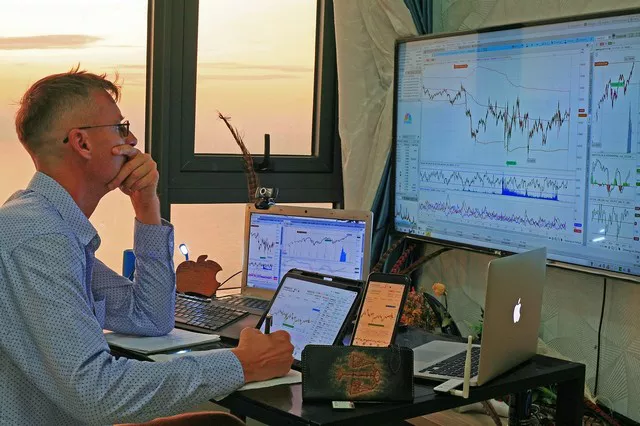Futures trading is a popular investment option that offers traders the opportunity to invest in commodities without actually owning them. It is a financial contract where two parties agree to buy or sell a commodity at a predetermined price and date in the future. In this article, we will explore the world of futures trading in commodities, its benefits, risks and strategies.
What is futures trading in commodities?
Futures trading in commodities is a form of trading that involves buying and selling contracts for physical goods such as crude oil, gold, silver, wheat, corn, and other agricultural products. These contracts are traded on organized exchanges such as the Chicago Mercantile Exchange (CME) and New York Mercantile Exchange (NYMEX).
How does it work?
Futures trading works through a standardized agreement between a buyer and a seller where they agree to exchange a specific quantity and quality of a commodity at a predetermined price and date in the future. The buyer agrees to purchase the commodity while the seller agrees to deliver the commodity on the specified date. Futures contracts have expiration dates, which means they must be settled on or before the date.
Benefits of futures trading in commodities
Diversification: Futures trading in commodities allows investors to diversify their investments by adding commodities to their portfolio. This can help to reduce risk and increase returns.
Leverage: Futures trading allows investors to trade in larger quantities using smaller amounts of capital. This is because futures contracts require a small margin deposit, which acts as collateral. This means that traders can make more significant gains with less capital.
Hedging: Futures trading in commodities can be used as a hedging strategy to protect against price fluctuations in the market. This is particularly useful for producers and consumers of commodities who want to protect themselves from price volatility.
Liquidity: The futures market is highly liquid, which means that traders can enter and exit positions quickly and easily. This makes it easier for traders to take advantage of short-term price movements in the market.
Risks of futures trading in commodities
Market risk: Futures trading in commodities is subject to market risks, such as price fluctuations caused by supply and demand factors, geopolitical events, and weather conditions.
Leverage risk: While leverage can magnify gains, it can also magnify losses. Futures trading involves significant leverage, which means that traders can lose more than their initial capital if the market moves against them.
Counterparty risk: Since futures contracts are traded on exchanges, there is always a counterparty risk associated with the trade. In the unlikely event that the exchange defaults, traders may face losses.
Strategies for futures trading in commodities
Trend following strategy: This strategy involves analyzing the market trend using technical analysis tools such as moving averages, chart patterns, and trend lines. Traders look for opportunities to buy or sell based on the direction of the trend.
Spread trading strategy: This strategy involves trading the price differential between two related commodities. For example, a trader could buy one crude oil futures contract while simultaneously selling a gasoline futures contract.
Seasonal trading strategy: This strategy involves analyzing historical patterns of commodity prices to identify seasonal trends. For example, agricultural commodities tend to have seasonal price movements based on the planting and harvesting seasons.
Conclusion
Futures trading in commodities offers investors a unique opportunity to invest in physical goods without actually owning them. It comes with its benefits, including diversification, leverage, hedging, and liquidity. However, it also comes with its risks, including market risk, leverage risk, and counterparty risk. To be successful in futures trading, it is essential to have a sound understanding of the market, use appropriate risk management techniques, and follow a well-defined trading strategy.

